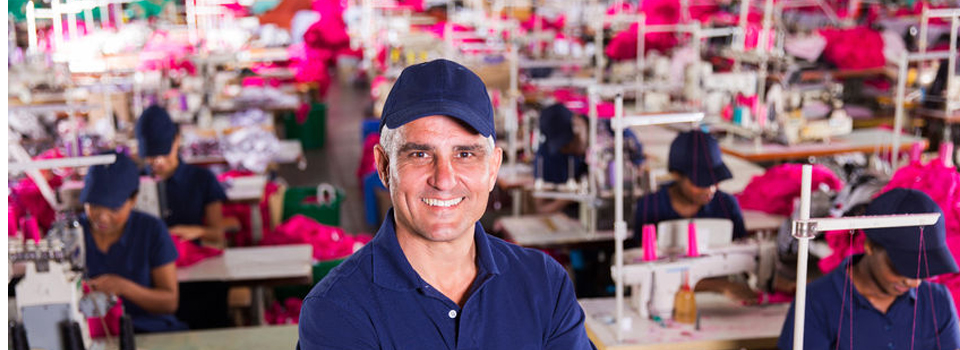Is Corporate Social Responsibility on Your 2019 Supply Chain Agenda?
Gartner’s decision in 2017, to add corporate social responsibility to its criteria for judging the world’s top 25 supply chain organisations was a clear indication that CSR has become much more than a matter of meeting environmental and ethical standards.
In short, a socially responsible supply chain is requisite for economic survival and to thrive, companies must factor social, environmental, and ethical priorities into plans for profitability and growth.
Regardless of opinion on the matter, corporate social responsibility has risen to demand inclusion in supply chain strategy. Procurement, logistics, and other functional leaders must prioritise it as a management imperative, not just for 2019, but also for the remainder of this decade and into the next.
What Makes a Socially Responsible Supply Chain?
The CSR concept has evolved into a principle belief that business must benefit society in ways extending far beyond the provision of products, services, and jobs. Corporate social responsibility has become complicated, its scope broadening from one of environmental concern to encapsulate human rights and societal impact.
To compound this complexity, observers expect CSR to be evident not just within an organisation, but across its entire network of suppliers, stakeholders, and business partnerships.
It’s no small or easy task to achieve, but CSR strategy development can be simplified by breaking it down into components, and then finding the most critical and impactful areas within each element to address.
As an introduction to meeting the challenge of supply chain social responsibility, let’s look at the main issues to consider.
Environmental Responsibility:
The environment… that’s where the idea of corporate social responsibility began, and despite the broadened scope of the CSR concept, it is just as relevant today as when concerns first arose about industry’s impact on climate change and sustainability of natural resources.
Environmental responsibility is also the area that most directly affects performance in the socially responsible supply chain—typically for the better. Carefully chosen initiatives can reduce the carbon footprint of your supply chain while at the same time, enabling it to operate with more efficiency and less cost.
Ethical Responsibility:
How confident are you, that your suppliers, their suppliers, and their suppliers, wherever they may be located, are not…
- Engaging in slave or child labour?
- Placing people in unsafe or unhealthy working conditions?
- Using questionable materials/processes in the production and supply of your orders?
While tackling this element of corporate social responsibility may not directly drive financial or operational performance gains, losses incurred through its neglect can be very direct and very bad for business.
Moreover, any reticence to disolve information about suppliers and sources in increasingly seen to cast doubt on a company’s responsibility towards diligence.
In short, if you don’t vet your suppliers’ ethics and show willing to disclose your findings, you risk harm to your brand and your company’s reputation, even if your internal operations are squeaky clean.
Societal Responsibility:
Societal responsibility is perhaps the least tangible segment of the CSR sphere, but is one that exerts a powerful influence on the public perception of your company.
Furthermore, if done right, efforts in this theatre, which include workforce welfare and development, as well as input into broader community projects, can yield direct benefits to your organisation, especially in human resource terms—think employee health, engagement, and retention.
Unilever Leads in Supply Chain CSR
Returning to the Gartner top 25 for a moment, one company is setting the bar for corporate responsibility in the supply chain. That company is Unilever, which has held the number one spot on Gartner’s list for three years straight. Unilever has also returned a perfect CSR score for the two years since it was introduced as a criterion.
There can probably be no better example then, to illustrate the types of initiative that companies should consider if they want to benefit from CSR in practice.
Perhaps surprisingly, many of Unilever’s supply chain CSR measures are quite simple and not especially groundbreaking. That should come as some encouragement if yours is like the majority of companies, and can’t wield even a fraction of the economic or political power at the disposal of the Anglo-Dutch titan.
Environmental Responsibility: Carbon Footprint Reduction
For example, Unilever elected to move away from its policy of outsourcing logistics, and brought it in-house, working on the premise that it has the internal capability, and scale, to improve supply chain service costs, reduce carbon emissions and relieve Europe’s roads of one truck in five.
While most companies can’t hope to single-handedly deliver anything like the same impact, that one move of Unilever’s does demonstrate how a straightforward change in one element of a supply chain strategy can both contribute to environmental improvement, and improve business performance.
Ethical Responsibility: Contractors’ Working Conditions
In a more eye-catching initiative, Unilever published a human rights report with itself (or at least, its contractors) as the centre of its investigation. In other words, it volunteered an admission that issues existed in its supply chain before anyone outside of the company could do so, and then set to work with non-profit partners and workers’ rights officials to fix the problems.
Image Source: Unilever Human Rights Report 2015
Again, if your company is serious about corporate social responsibility, you should not be afraid to investigate two to three tiers deep into your supply chain and turn over some rocks. If everything proves ethical, the exercise will have been worthwhile, and if not, society will applaud rather than condemn you for taking a proactive stance—as long as, like Unilever, you resolve any issues that you find.
Put Some Peer Power into Your CSR Plans for 2019
If your company is already well on the road to best-in-class credentials, your peers can surely use your insights into the CSR elements we’ve touched on here. If your company hasn’t paid CSR too much mind to date, peer support can help you gain traction.
Regardless of your company’s overall maturity in the CSR arena, I’d be surprised if you don’t have some questions, thoughts, and ideas about the socially responsible supply chain and how to support its development.
Few of us are real experts in what is still evolving supply chain trend, so CSR strategy development is ripe for advancement through the pooling of executive experience and wisdom.
The Supply Chain Leaders Boardroom offers the perfect environment for sharing and gaining corporate social responsibility knowledge, both with your peers and with specialist experts who know the landscape. If CSR is on your supply chain agenda for 2019 (and frankly, it should be), why not sign up now and secure your place at the boardroom table?
Editor’s Note: This post was originally published in January 2017 under the title “Is Corporate Social Responsibility on Your 2017 Supply Chain Agenda?” It has now been revamped, expanded, and updated with some more current information.








